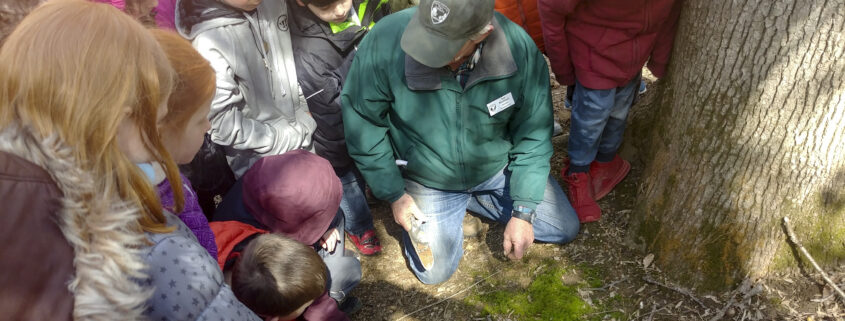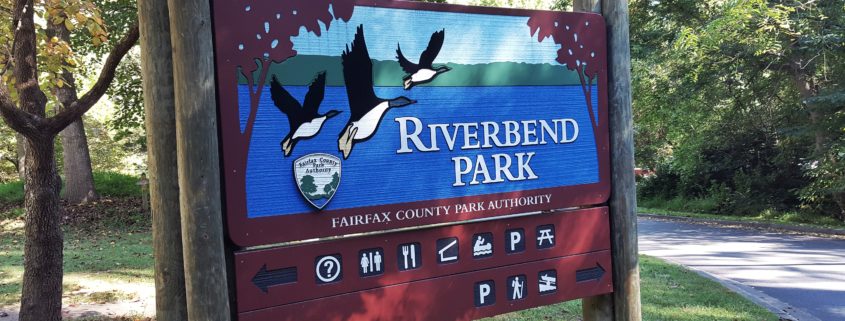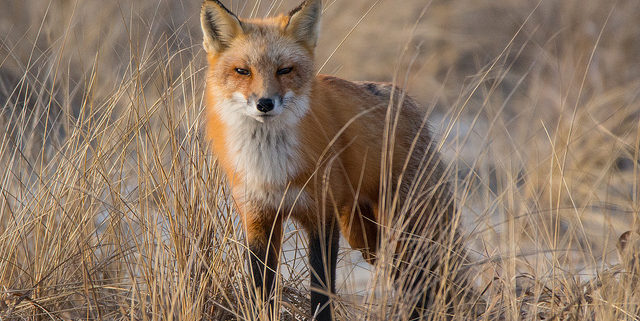Winter Volunteer Opportunities at Fairfax County Parks
Photo: Suzanne Holland
Volunteering is a year-round adventure at Fairfax County Parks! Here is a selection of exciting opportunities at Ellanor C. Lawrence Park, Hidden Oaks Nature Center, and Riverbend Park. Have fun!
Ellanor C. Lawrence Park
5040 Walney Rd. Chantilly VA
Projects that volunteers could be working on in the winter:
1. Removal of Japanese bush honeysuckle using weed wrenches from the historic loop area and beyond.
2. Removal of autumn olive trees using hand saws from the corner of the park near the intersection of Walney Rd and Poplar Tree Rd.
To volunteer, contact Gabby Hrycyshyn, Natural Resource Manager, gabrielle.hrycyshyn@fairfaxcounty.gov.
Receive a 1 hour training on identifying and removing Japanese bush honeysuckle and/or autumn olive. Then come in on your own schedule with 1-2 days advance notice so that tools can be made available.
(Master Naturalists: Record hours as S108: Invasive Plant Removal)
Hidden Oaks Nature Center
7701 Royce St., Annandale VA
Variety of nature programs
Contact Suzanne Holland, suzanne.holland@fairfaxcounty.gov to volunteer.
Be at site 30 min. prior if assisting, 1 hr. prior if leading.
Salute the Bald Eagle Fr. 1/14 from 7-8 p.m.
Full Moon Nature Hike and Campfire Monday Jan. 17 from 7-8 p.m.
Skiing Penguins and Snowman Fun Th. Jan. 20 3-4 p.m. or Feb. 17 from 10-11 a.m. or 4-5 pm
Build Your Own Birdfeeder (Pinecone) F Jan. 21 from 10:30-11:30 a.m. or 1-2 p.m. or 2:30-3:30 p.m.
Owl Walk & Talk (ages 2 yr. +) Sa. Feb. 12 5-6 p.m.
(Master Naturalists: Record hours as E110: FCPA Nature Programs. In the Description, include Hidden Oaks and the name of the program. In Direct Contacts, write the number of people you spoke to or who attended the program.)
Riverbend Park
8700 Potomac Hills St., Great Falls, VA
Natural Resources Projects, every other Wednesday, 9am – 12pm or 1pm – 3pm
Help maintain and protect native plants through plantings, pullings, and projects.
To volunteer, contact Rita Peralta at rita.peralta@fairfaxcounty.gov
(Master Naturalists: Record hours as S109: FCPA Habitat and Parkland Management)
Adopt-a-Spot, every other Wednesday, 9am-12pm or 1-3pm
Adopt an area at Riverbend Park to maintain and care for.
To volunteer, contact Rita Peralta at rita.peralta@fairfaxcounty.gov
(Master Naturalists: Record hours as S109: FCPA Habitat and Parkland Management)
Animal Care, Tuesdays, Thursdays, Fridays
Help us care for our turtles and snakes, must complete training before solo care, schedule flexible.
To volunteer, contact Mo Swirnsky at aliceanna.starrs@fairfaxcounty.gov
(Master Naturalists: Record hours as S182: FCPA Nature Center Animal Care)
Forest Friends, Monday-Friday
Chaperone, craft, organize, accompany on trips/hikes, mentor and teach young children
To volunteer, contact Amy Cullen at amy.cullen@fairfaxcounty.gov
(Master Naturalists: Record hours as E110: FCPA Nature Programs. In the Description, include Hidden Oaks and the name of the program. In Direct Contacts, write the number of people you spoke to or who attended the program.)


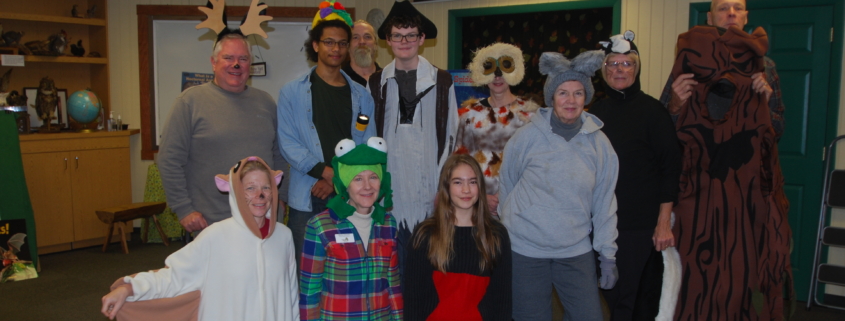
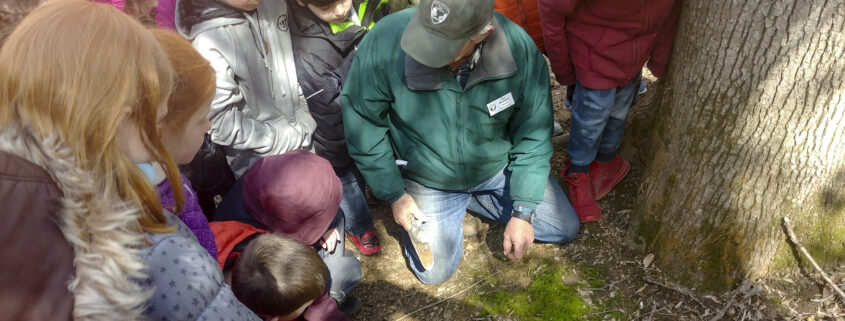
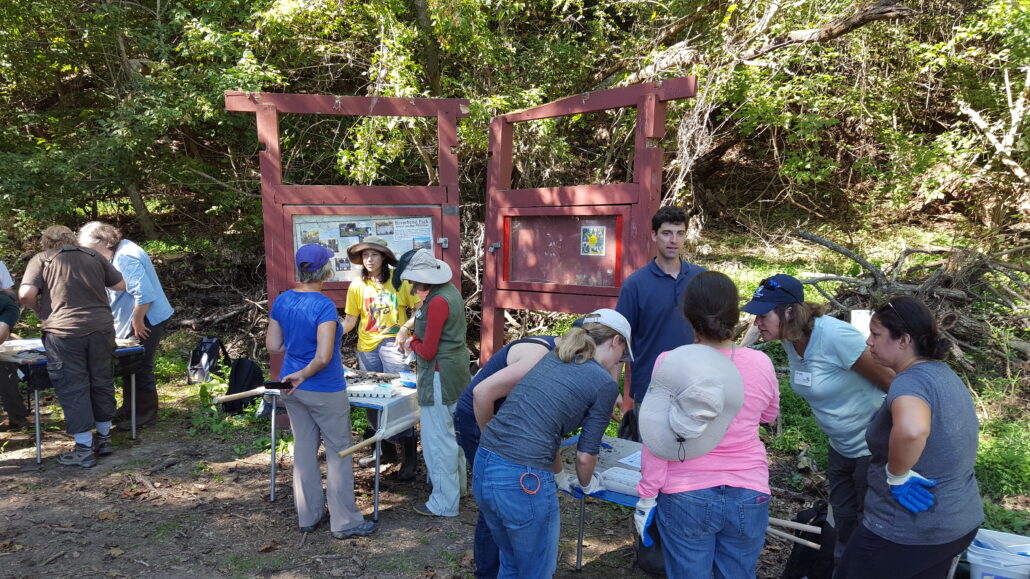
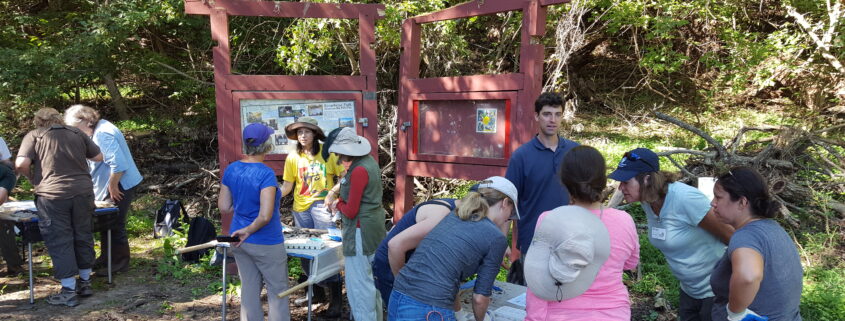
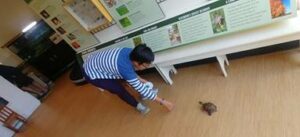
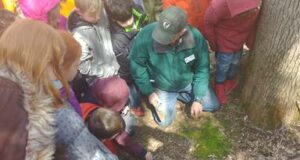
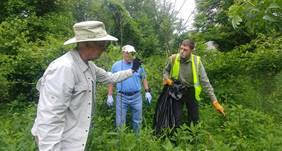
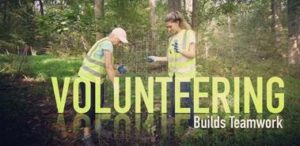
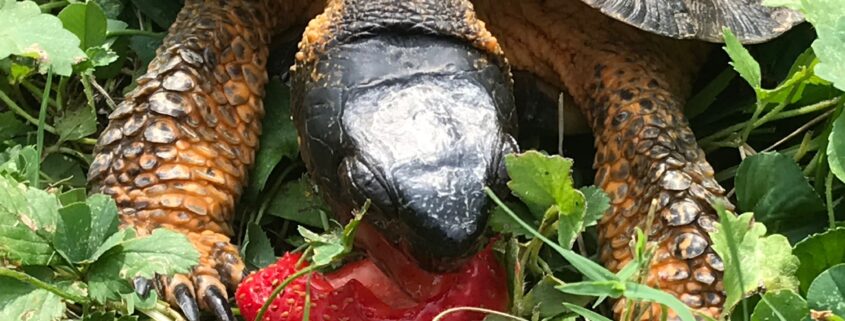
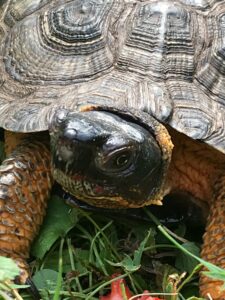

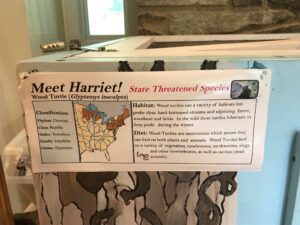 Every 6 months, Riverbend’s Senior Interpreter Rita Peralta and Volunteer Coordinator Valeria Espinosa invite additional volunteers to help attend to not only Harriet and the box turtles, but also the snakes, frogs, and fish living in the Riverbend Visitor and Nature Centers. The always-welcoming Riverbend staff offer training sessions, flexible scheduling, and, best, the chance to nurture, learn from, and teach visitors about the gentle beings inhabiting the wild places that still remain to us in Fairfax County.
Every 6 months, Riverbend’s Senior Interpreter Rita Peralta and Volunteer Coordinator Valeria Espinosa invite additional volunteers to help attend to not only Harriet and the box turtles, but also the snakes, frogs, and fish living in the Riverbend Visitor and Nature Centers. The always-welcoming Riverbend staff offer training sessions, flexible scheduling, and, best, the chance to nurture, learn from, and teach visitors about the gentle beings inhabiting the wild places that still remain to us in Fairfax County.